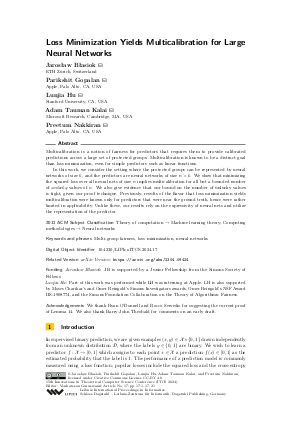LIPIcs.ITCS.2024.17.pdf
- Filesize: 0.78 MB
- 21 pages

 Creative Commons Attribution 4.0 International license
Creative Commons Attribution 4.0 International license



















Feedback for Dagstuhl Publishing